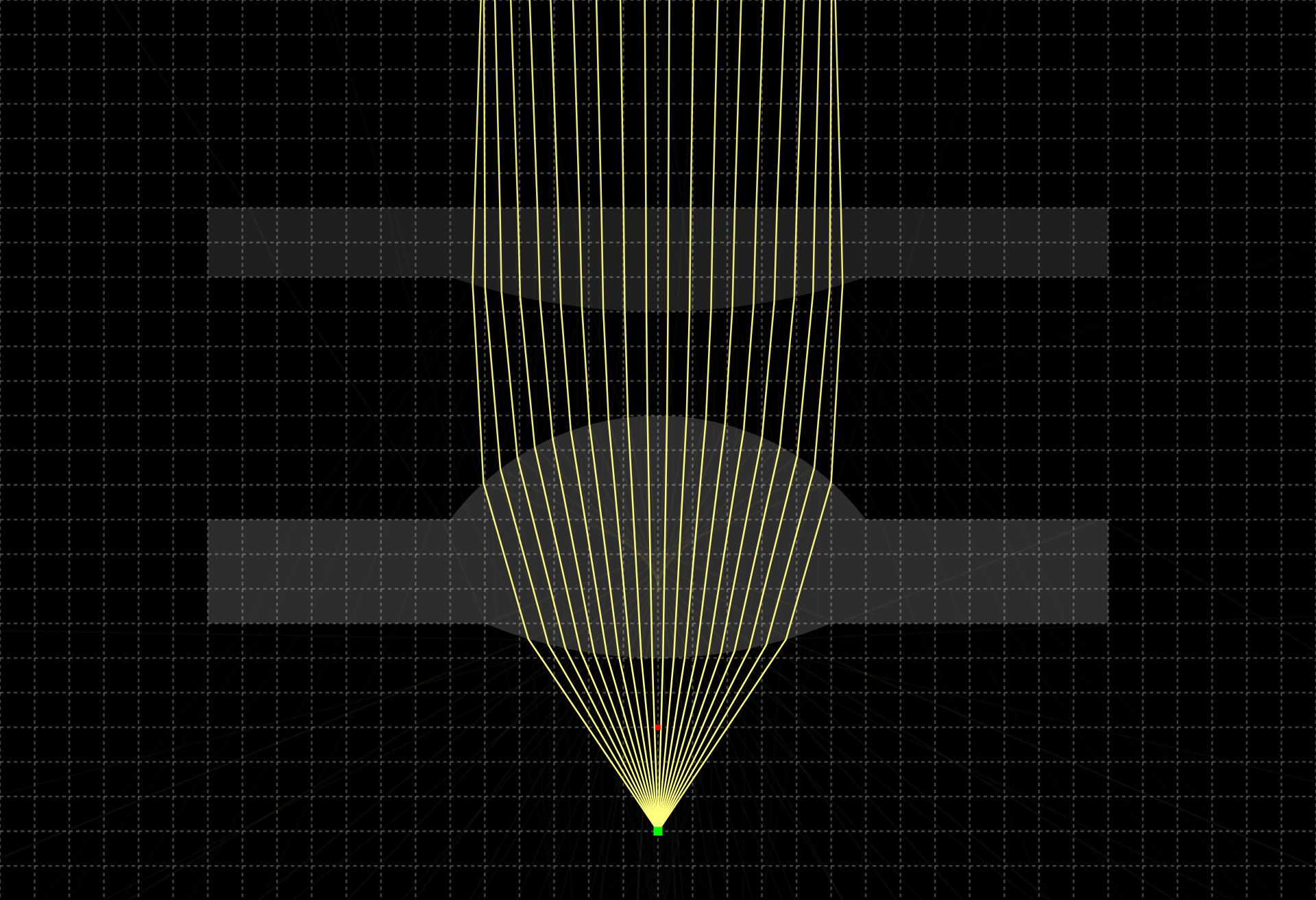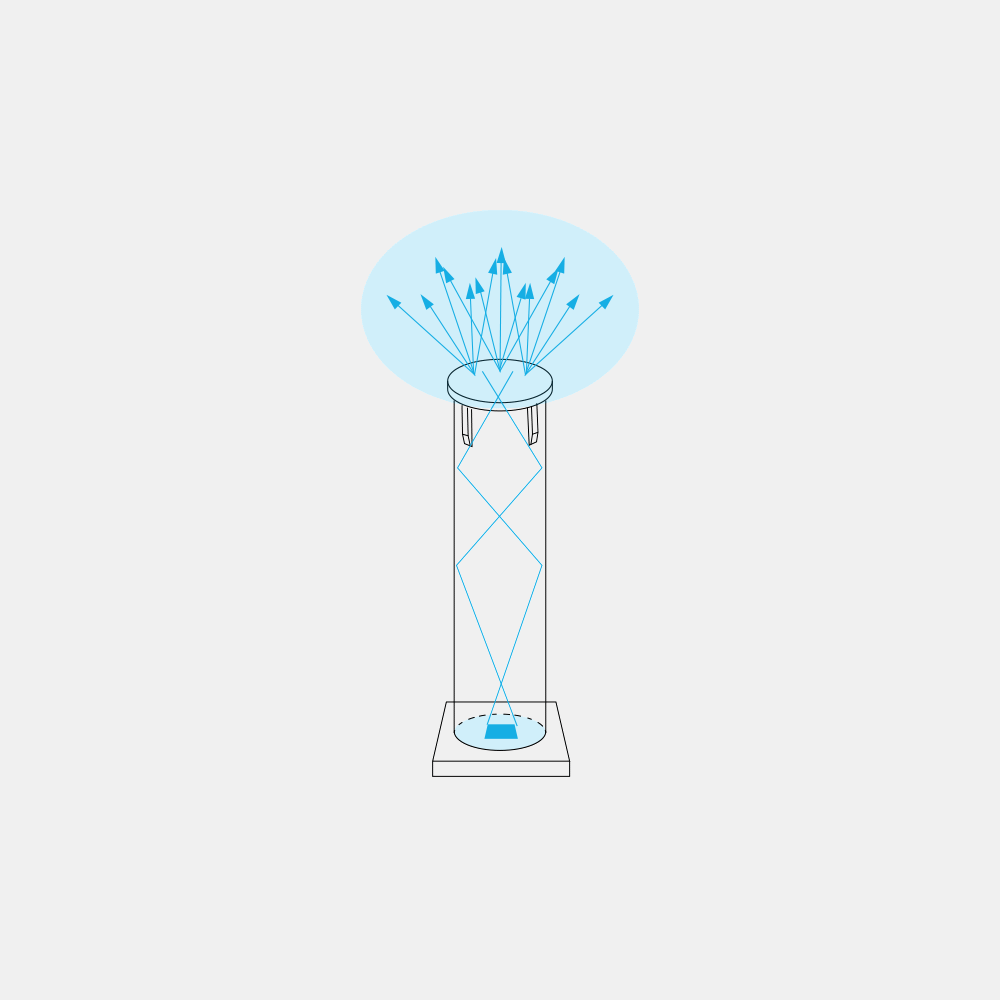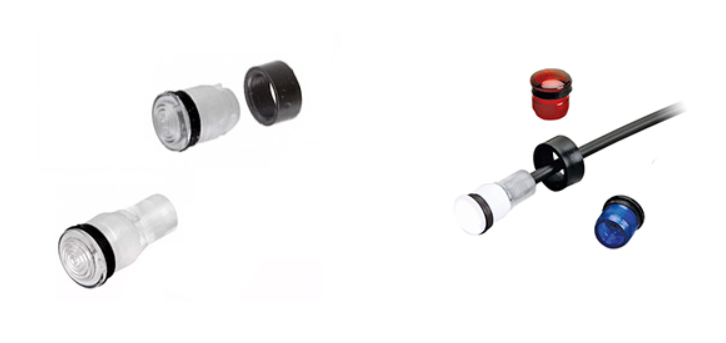Glossary
Explore our curated list of essential terms related to the design, engineering, and production of light pipes, panel mount indicators, and LED displays.
The Ultimate Status Indicator Glossary
Deepen your understanding of the concepts, terminology, and product names we use in the world of VCC. We encourage you to bookmark this page and revisit regularly, as we continually update it with new definitions.
-

Medium
Light pipe design requires an understanding of how light travels when it shines through a medium, or material, such as water, acrylic, polycarbonate, silicone resins, and more.
The amount of light that travels, how the light bends and other factors will vary by the medium due to a phenomenon called refraction.
-
Micro-Fit Connector Dual Row
A micro-fit connector dual row can be used to join board-to-board, wire-to-board, or wire-to-wire configurations. For production efficiencies, VCC can add a dual row micro-fit connector to indicators rather than having to outsource that step to a third-party.
-

Minimal Light Loss
In light pipe design, minimal light loss is the ultimate goal.
While there will always be some minuscule amount of light loss, minimizing the light loss, or light bleed, is achieved with proper design and testing.
-

Moisture-Sealed Light Pipe
There are many indoor and outdoor applications where an indicator may be exposed to moisture — from raindrops to harsh cleaning chemicals.
A moisture-sealed light pipe is one that includes additional security measures designed to keep moisture out so it doesn’t hamper performance.
-

Mounting Hole Sizes
Mounting hole sizes are used to determine the appropriate PMI to accommodate a panel or interface. Every product will vary slightly in size.
VCC offers indicator mounting hole sizes ranging from 0.16” (3.98mm) to 0.88” (22mm). PMIs with custom mounting hole sizes are available if a minimum quantity is ordered.






